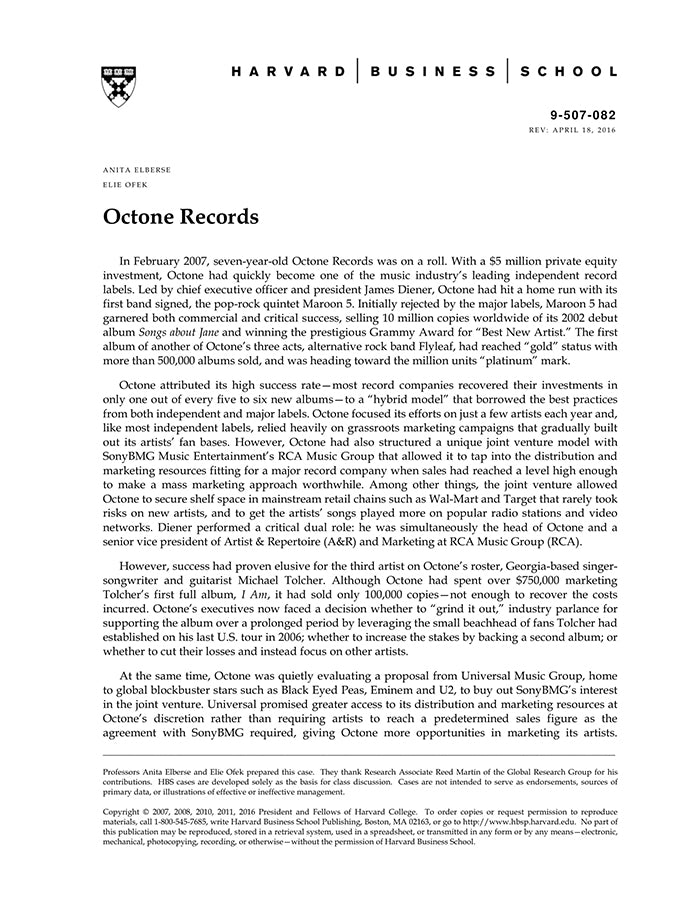Octone Records
受取状況を読み込めませんでした
In February 2007, Octone Records founders James Diener, Ben Berkman, and David Boxenbaum had been highly successful with the first two bands they had signed, Maroon 5 and Flyleaf. Known for its grassroots marketing campaigns, Octone operated through a unique joint venture model with SonyBMG Music Entertainment's RCA Music Group, which enabled the nimble record label to orchestrate mass marketing campaigns once an artist was ready for "prime time." Octone had been less fortunate, however, with its third act, Michael Tolcher. Despite significant investments, Tolcher's first full album had not sold enough copies to recover its costs and merit RCA's marketing support. Octone's executives faced a decision: whether to continue to support Tolcher's first album, increase the stakes by financing a second album, or cut their losses and instead focus on other artists. At the same time, Octone had to evaluate a proposal from Universal Music Group to buy out SonyBMG's interest in the joint venture. Allows for an in-depth examination of new product development and launch strategies in the context of the music industry. Provides rich insights into how grassroots and mass marketing approaches can facilitate new product/artist development. Octone's "hybrid" marketing structure is described in considerable detail, and supporting economic data is provided. By enabling an analysis of how long and how aggressively an artist should be supported before commercial success is achieved, serves as a vehicle for contrasting different approaches to the new product development process.
【書誌情報】
ページ数:27ページ
サイズ:A4
商品番号:HBSP-507082
発行日:2007/6/29
登録日:2011/8/22


